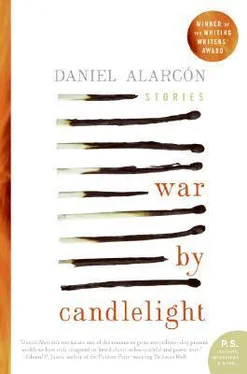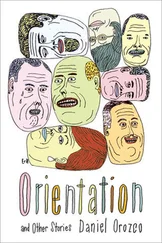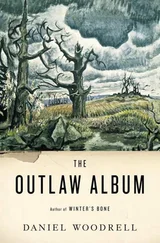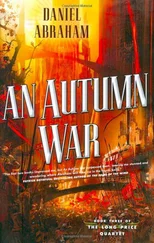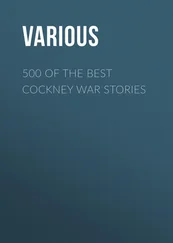José Carlos shook his head, and coughing loudly, put out his cigarette. “It’s simple, Negro. The side with guns always wins.”
VII. To Lima, 1965
Then there was the bus that took Fernando to Lima. It was the kind of contraption held together by ingenuity, built from salvaged parts with the practiced art of making do. Learn what the engine can handle and disregard its feelings, its wishes, and its whims.
Repairs were cruel surgeries of convenience, and the bus grew hardened, indifferent, and ran from spite and disgust, crossing Andean passes, wheezing and cursing the broad-bowed freighter that brought it from Germany, the United States, or Sweden. Soon the seats were cracked and choking with dust, the windows rattled with each bump, each pothole, each patch of rough stones. The passengers rode, somehow coaxing sleep from the nauseating pounding of metal and glass, and the murderous odors of diesel.
This is how Fernando came to Lima at age seventeen: wearing a brown sweater over a modest button-up, with blue slacks and black shoes worn thin at the heels. Riding that bus, seated in the back row with six others, a mishmash collection of souls on one or another of life’s various errands: to buy, to sell, to visit, to marry, to find, and more than a few, to forget.
Young people climbed onto the bus in the dead of night, leaving behind bankrupt and miserable villages of adobe houses and cold fields of cotton and maize. They carried a change of clothes, a picture, a little food, a plastic comb, a letter of introduction, a bag of coca leaves, or a crucifix. They dropped their bundles in the aisle and stood for twelve hours, until the sun was up and roaring, the bus warm and drowsy with heat, and still they stood, beads of sweat forming on their lips and on their temples. Fernando watched them. They were his contemporaries. His countrymen. He watched them pull a few soles from their pockets, haggle with the driver, shake their heads, and point their fingers. Their skin toughened by the sun and the wind. Some spoke only Quechua and some seemed not to speak at all.
Sometime in the afternoon the driver lost control. In a frightening half-second, the tires slid on the gravel, the road slipping beneath them. With a punishing blow, the bus slammed into the side railing, swerved back toward the mountain, toward safety, and came to rest, half-leaning, half-balancing against the brittle and crumbling earth that overlooked the road. To their right, just beyond the guardrail, a jagged drop-off and the valley below. People picked themselves up slowly. Bags and blankets were pushed aside. Fernando found himself stretched across three strangers. Legs and arms sorted themselves out. Mothers attended to crying children. Someone handed him his glasses with a smile and asked if he was all right. Everyone seemed to be reasonably well, though shaken — except the driver, who had taken it worst of all, perhaps because he had seen that shocking flash of blue across his window as the bus peered over the edge. He knew better than anyone how close they had come. The force of the accident had thrown him from his seat, but he had climbed back up to his perch, pulled the door release, and then sat still, pallid, gripping the wheel, rocking his head back and forth, eyes glazed, reliving the accident. A few people stopped to check on him, to pat him on the shoulder, to urge him outside, but he ignored them.
The men, with Fernando eagerly helping, set about the business of righting the bus. It was leaning precariously against the dirt rock wall of the road, its right tires about two or three feet off the ground. The cargo tied to the racks on the roof of the bus had come loose. Now it draped over the edge of the right-side windows. The tarp that covered the cargo had held, the suitcases, sacks, and crates together still, but dangling dangerously from the top of the bus.
Fernando walked to the edge where the bus had nearly taken flight and looked out over the valley. It was a tremendous sight, a magnificent Andean landscape, a silver-gray sheath of rock, a fierce blue sky, and along the hills, footpaths where man and beast walked. Perhaps the Inca’s own messengers had marched along those paths in the days before the Spanish, before Atahualpa tossed Pizarro’s Bible to the ground, before the killing began. There was a spectacular loneliness in the mountains, in the grand theater of wind and sky, mountain and water, and so much quiet, Fernando felt ashamed to speak. Perhaps he imagined this, or imposed it on himself, or perhaps he adopted the quiet rectitude of his fellow passengers, who nodded and gestured more than they spoke. Fernando longed to know their language.
Then the driver, still shaken, stepped into the sun-struck day, pointing frantically at the luggage compartment beneath the coach. And suddenly they heard it — the banging, clawing against metal, a sound previously lost in the wind. The men sprang into action, and in an instant, the door was open, and beneath luggage and crates, a man emerged. He had been asleep beneath the bus, having driven all night, waiting to replace the driver at the next town. They pulled him out, his legs kicking, arms flailing, a man being born again, having experienced death blindly.
“Brother,” the driver said, rushing toward him. “My brother!”
Fernando could hear the man breathing, pulling in enormous lungs full of oxygen, replenishing himself. The man was crying and fearful. “Oh God, Oh God, Oh God,” he murmured. A thin stream of blood curled from his bottom lip. The brothers embraced and Fernando fell in love with his people.
VIII. Carmen, 1986
His mother died. Lima accepted his sadness and gave him a month of sunless days. At the funeral, Fernando held Inés’s hand. The war had worsened. It seemed that the city might fall at any moment. In Lima, people tried to live their lives as if nothing were happening, but no one slept by the windows anymore. Bombs could go off at any moment. Fathers rushed home to beat the curfew. Young people used it as an excuse to stay out all night. Parties had devolved into fatalistic bacchanals.
Sixteen journalists were killed in a faraway mountain village. The peasants had mistaken them for collaborators. News crawled into Lima ten days later. In San Martín, a group of rebels took over a jungle town and waved rifles in the air. Guerrilla leaders, drunk with victory, pulled bandanas from their faces and announced to television cameras that victory was near. A shocked nation stared at its tormentors. The papers called them terrorists. In Lima, Fernando cringed. A backlash would come soon.
On July 13, 1986, Carmen was born on the third floor of the public hospital in central Lima.
With Carmen, Fernando and Maruja were finally alive. It was as if they had been sleeping all along. He had never seen anyone more beautiful than Maruja that morning she gave birth to his child, and when Carmen slept for the first time on his chest, he felt complete. Even as he held her, he realized he was placing a wager on his life: that the war might not spare him long enough to see her grow. Still at the hospital, he confided with Maruja that he was afraid. She said that she had always been.
Carmen was an accident. Maruja had never been convinced, not until that moment that she held the child and discovered that she could love that much again. She told Fernando that she hadn’t expected to find that within her once more. Fernando’s health reappeared, and he carried Carmen with him everywhere. He relished changing her diapers. He rode the bus with his daughter asleep on his lap. In meetings, while comrades waved fingers and spoke forcefully, Fernando rocked the child and whispered nursery rhymes in her ear, so she wouldn’t be afraid of the loud voices.
Maruja brought home a map one day, and they tacked it to their bedroom wall. That evening, once the baby was asleep, they stood hand in hand to marvel at the size of the world. It was comforting to see how little their war was, and to think there were places out there where their struggles were not news.
Читать дальше
